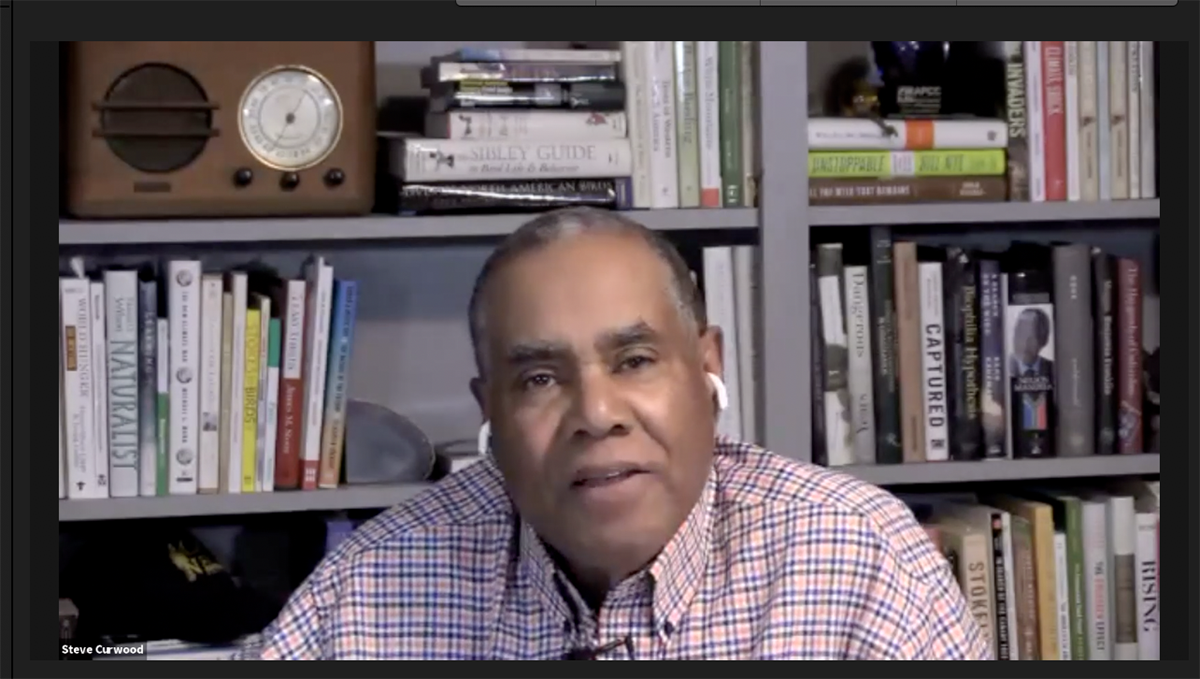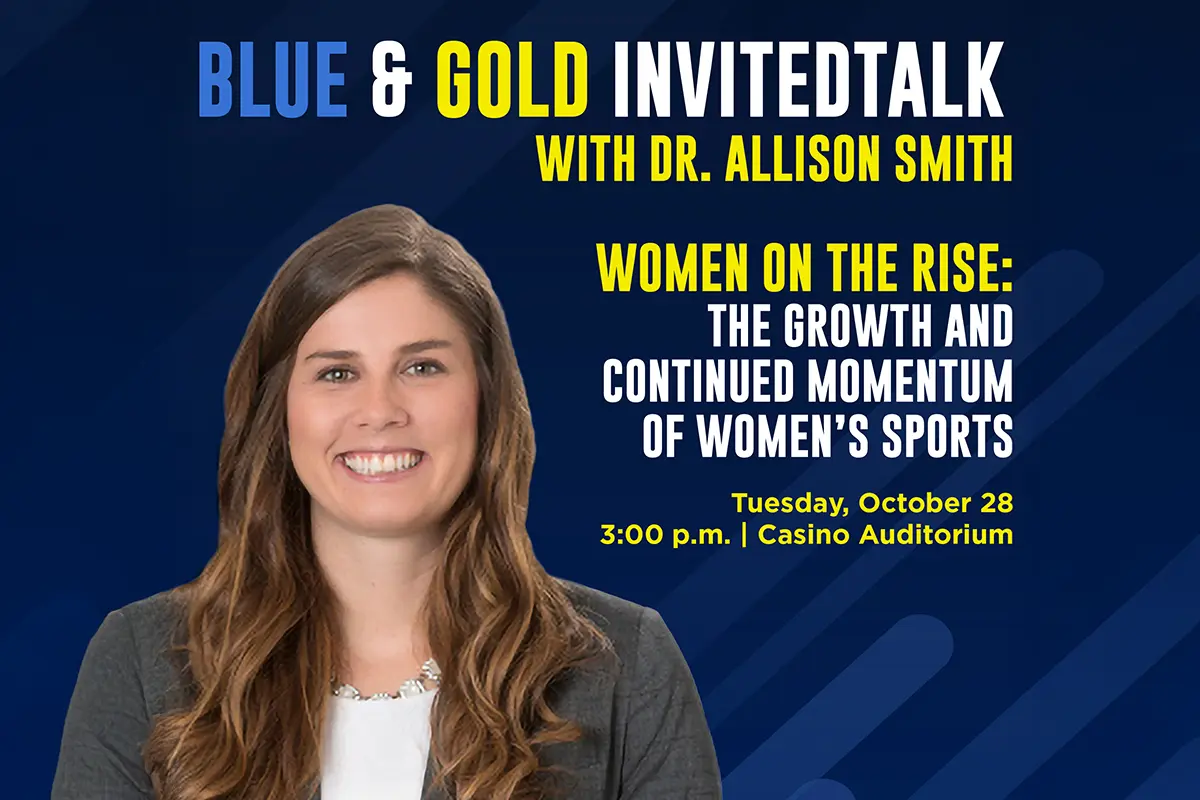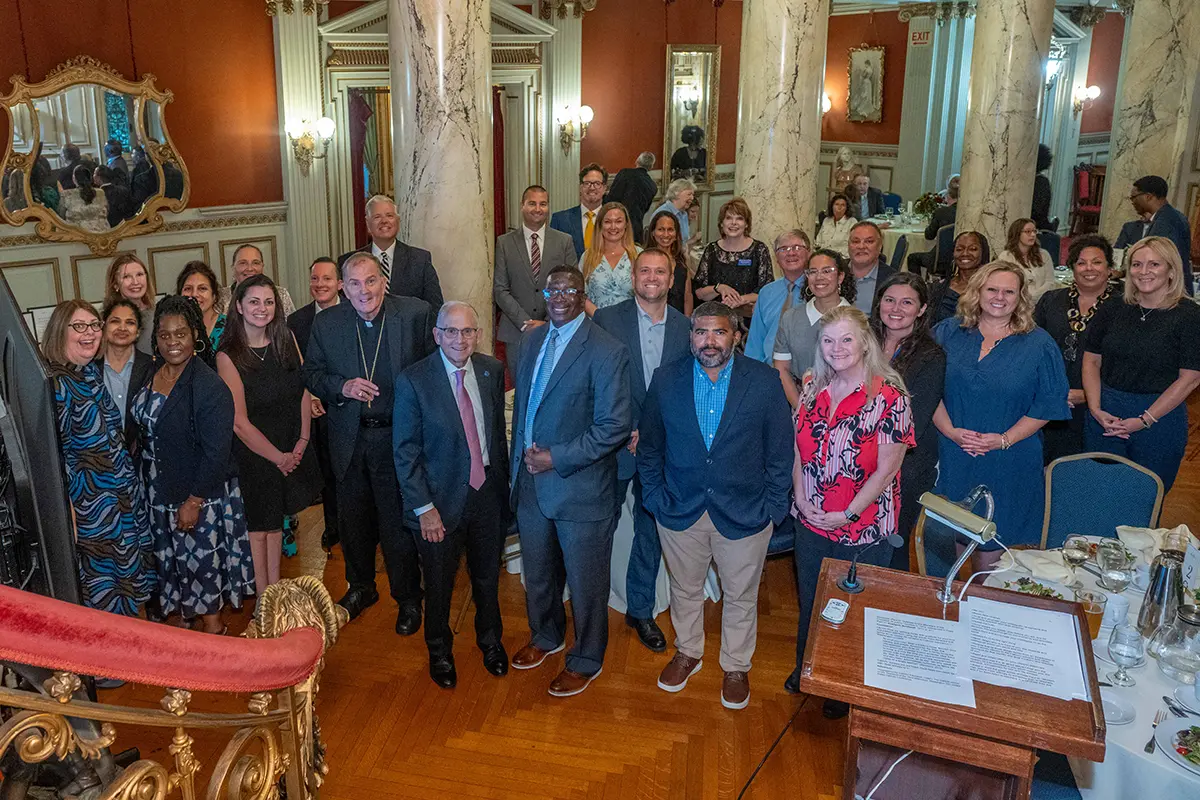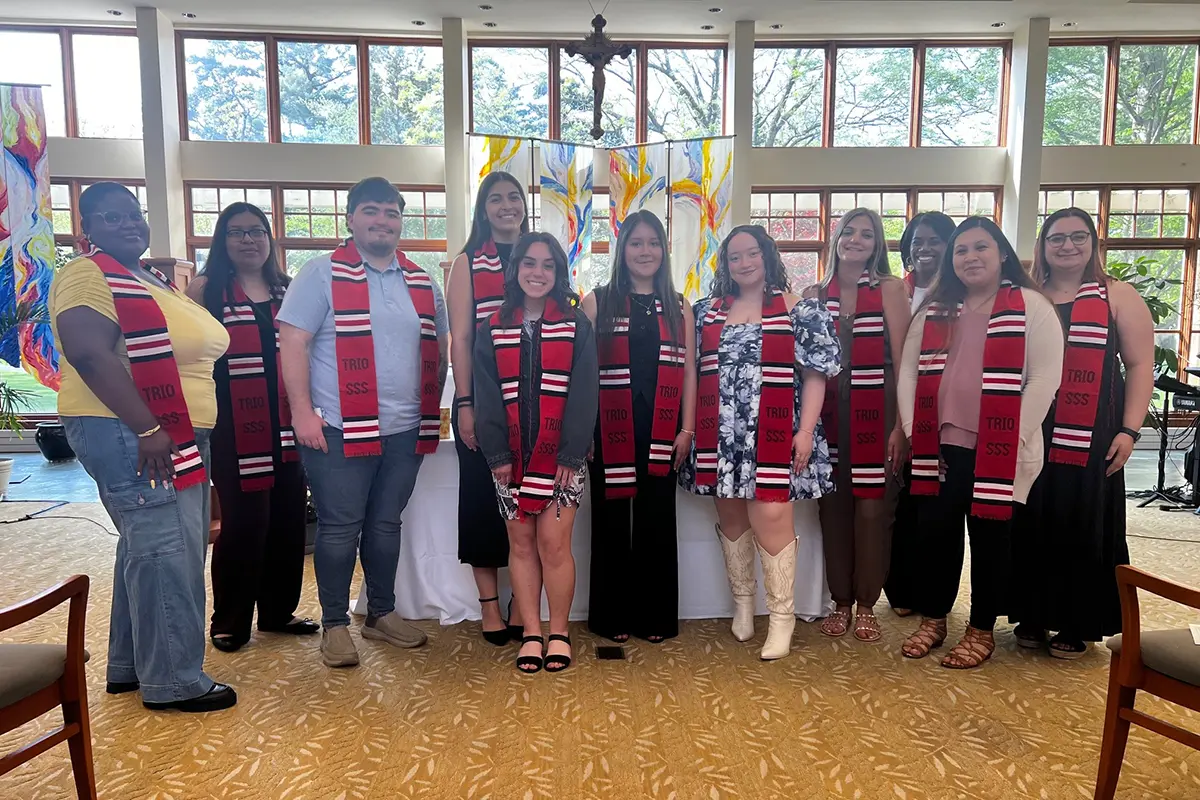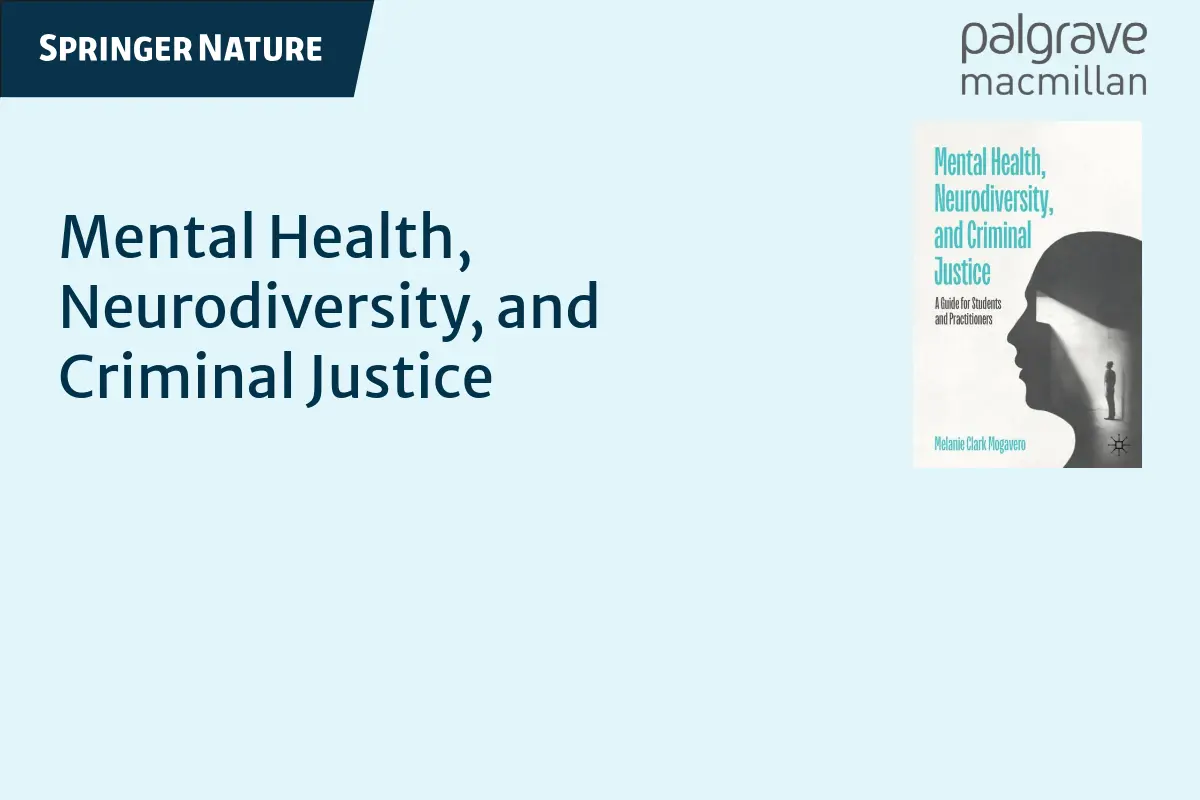God’s timing isn’t always our timing, but we must act immediately to address a climate emergency and environmental racism. That’s according to Steve Curwood, executive producer and host of NPR’s award-winning environmental news program Living on Earth. Mr. Curwood was one of two keynote speakers during Georgian Court University’s Critical Concerns Week 2021.
From March 18-25, the university community examined two of the Sisters of Mercy Critical Concerns, the Earth and racism, through presentations, panel discussions, prayer and reflection, and the arts. Before Mr. Curwood’s keynote address, a Cardell Dance Theater performance of Forgotten Bodies, which depicts the effects of human behavior on bodies of water, was presented.
The climate emergency, Mr. Curwood said, is evident through many changes to our earth, such as the onslaught of tornadoes, winter storms slamming Texas and warmer temperatures at the earth’s poles. Especially alarming, he said, is a recent study that suggests even the Amazon rainforest, long considered a bulwark against climate change, is actually contributing to it.
“We really need to deal with this emergency now. Not next year. Not in 10 years,” he said. “We need to deal with it now.”
Environmental Racism Causes Disproportionate Harm
Another troubling pattern: environmental racism, in which people of color are disproportionately affected by pollutants and other harmful environmental factors. During Chicago’s 1995 heat wave, he noted, temperatures were likely up to 20 degrees warmer in the city’s public housing projects. These concrete and brick “heat islands” are a result of 1930s redlining practices that pushed people into these complexes. Nearly 740 people died, mostly older Black people living in projects that were “infernos.”
Mr. Curwood’s second example of environmental racism was ultrafine particles in the air, which result from burning fossil fuels. It’s believed that ultrafine particles may exacerbate chronic health conditions such as heart and lung disease and contribute to about 300,000 premature deaths in the United States each year. Again, people of color are disproportionately affected: Black people experience 56% more pollution than they cause, and Latinx people experience 63% more pollution than they create. That’s compared with white people, who are affected by 70% less pollution than they cause.
How to Effect Environmental Change
Critical Concerns Week aims to both inform and transform, so Mr. Curwood provided several ideas for contributing to the change that’s so desperately needed. The first: Voting for candidates who embrace environmental activism, with the 2020 elections proving how vital it can be. An Environmental Voter Project (EVP) survey found very few active voters among Georgia residents who identified environmental issues as their top concern; many were people of color. Through the EVP’s efforts, 115,000 from this group voted for the first time. In the runoff senatorial election, some voted who had not done so in the presidential election.
When pro-environment candidates win, Mr. Curwood said, work with them to effect change, especially in urban areas. “Think big picture,” he said. “If we can create more open space in our cities, they’ll be greener and cleaner. We need to reimagine and redevelop our cities.” Further, he said, consider running for office as the candidate who’ll work for environmental change.
People of faith can also do their part, he said, noting that most organized religions, including Catholics, have caring for the Earth among their beliefs. “If you’re on the building committee at church, ask, ‘What are we doing in terms of renewable energy?’” he said.
Ultimately, concluded Mr. Curwood, addressing the climate emergency and environmental racism requires many voices.
“No one person can do this, but if we act collectively and work in concert with the community, we can address it.”
Contributed by Sheila Noonan.

